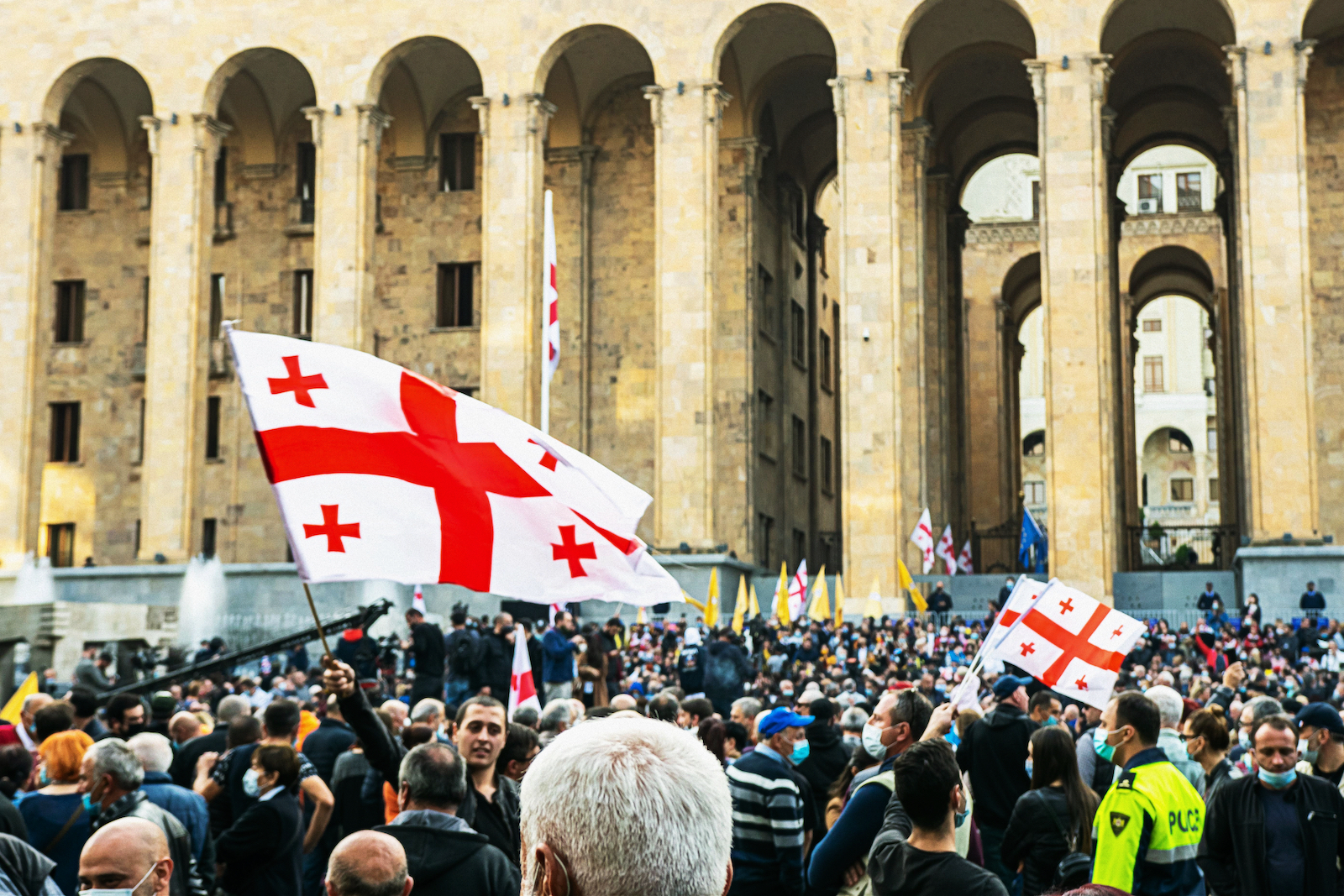
Only Georgians Can Determine their Country’s Future
On March 9th, the ruling Georgian Dream party withdrew its “foreign agents” law after two nights of furious protests. Under this legislation, individuals, civil society groups, and media outlets that receive 20% of their funding from abroad would have been required to register as an “agent of foreign influence.” Protestors have denounced the legislation as Russia-inspired and totalitarian, shouting, “No to the Russian law” while carrying EU and Georgian flags. Through its actions, the ruling party does not accurately represent the will of Georgians as the country drifts further away from EU membership.
Georgia is an outlier among many other former Soviet republics given that it has a history of relatively fair elections and transparency. But things have changed under the reign of the ruling party. Despite Georgia’s progress towards becoming more democratic, Ukraine and Moldova were granted EU candidacy in June 2022, while Georgia was not, which marks a significant setback in its progress toward becoming a more democratic country.
Regardless, 85% of Georgians support their country joining the EU and improved ties with the West have been vital for most of its post-Soviet history. These latest protests against the ruling party’s policies are a continuation of the Rose Revolution protests of 2003. Then, tens of thousands of protesters carried roses as they pushed back against former President Eduard Shevardnadze, who perpetuated corruption, electoral fraud, and widespread poverty. The Rose Revolution was particularly significant because its relative lack of bloodshed showed that peaceful transitions of power were possible in the South Caucasus.
Following the Rose Revolution, Georgia shifted in a pro-Western direction under Mikheil Saakashvili by allowing its territory to be used to complete the Baku-Tbilisi-Ceyhan pipeline, which became operational in 2006, allowing the West to tap into Caspian oil and bypass Russia. In 2008, Georgia further extinguished Russia’s influence by withdrawing from the Commonwealth of Independent States, a Eurasian regional grouping of former Soviet republics. However, Georgia has had 20% of its territory, including South Ossetia and Abkhazia, occupied by Russia since the 2008 Russo-Georgian conflict.
After the 2008 war and Russia’s occupation, in 2012, the Georgian Dream party, established by billionaire Bidzina Ivanishvili, came to power. The party, which also faced protests in 2019, was accused of being corrupt and subservient to Russian interests. The ruling party, dominated by a small group of leaders with little affinity for democracy or transparency, undermines Georgians’ EU aspirations.
Russian media and officials have pushed back against Georgia’s recent protests. Sergei Lavrov, Russia’s Foreign Minister, has characterized Tbilisi’s recent protests as “an attempt to change the government by force.” A disturbing development occurred when the Russian Ministry of Foreign Affairs Twitter account released an ominous message for protesting Georgians. It read, “The protests against the ‘foreign agents’ bill, which took place in Tbilisi, culminated in the call for the government to resign. We recommend that the Georgian people remember the similar situation that took place in Ukraine in 2014 and what conclusion it led to. Think twice!” Moscow is exceedingly suspicious that the West is meddling in the politics of a former Soviet republic. During the Maidan protests in 2014, the Kremlin suspected that the protests were primarily being driven by Washington in order to overthrow a pro-Russian ally, ignoring the fact that Ukrainians identified with Brussels and Washington, and not Moscow.
Despite Moscow’s allegations, there is no evidence that Washington is behind these protests. The desire for democracy and stronger relations with the West are already naturally present in Georgia. However, the United States slapped sanctions on four Georgian judges in a retaliatory measure for not preserving Georgia’s status as “the poster child of Western-style reforms in the Caucasus.”
The United States rhetorically should fully support Georgians in their calls for an end to Russian influence and improved ties with Brussels and Washington. While these sanctions are a minor measure, the United States risks pushing the ruling party further into Moscow’s orbit by getting directly involved. Ultimately, while it would be a positive development for Georgia to adopt more measures that would allow it to gain EU membership, it is not in the United States’ best interest to meddle in the internal politics of a former Soviet republic. Georgia is well outside the United States’ sphere of influence. Whether or not Georgia wants to orient itself toward the West, Georgians must remain in the driver’s seat in determining their political trajectory.
In 2021, the European Commission made clear what steps Georgia needs to take to gain candidacy for membership through twelve concrete recommendations. These include human rights reforms, anti-corruption, and free and independent media. Being transparent with its standards is the most that any aspiring EU member can ask for. Georgians must continue to push their government to work on these areas and thus far, they have successfully done so.
Through protests, Georgians have returned to their roots and shown that they can fend for themselves and be the masters of their destinies. The diversity of the protesters, including students, journalists, and artists, contributed to the success of the demonstrations. A withdrawal of the draconian “foreign agent” bill hopefully signals that the ruling class of Georgia will eventually need to move toward resisting outside influences and be held responsible by the governed.
